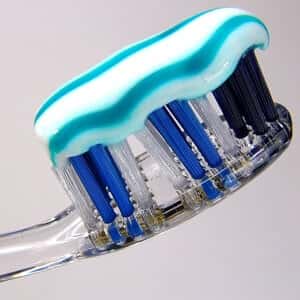
Is something making your mouth sore? We’ve heard from many readers with angular cheilitis (sore, inflamed cracks at the corners of the mouth). Figuring out the cause and choosing the right treatment is sometimes difficult. One reader solved this puzzle for herself.
What Is Making the Mouth Sore?
Q. Many years ago I had severely cracked corners of my mouth. It really made my mouth sore.
I discovered quite by accident that it was caused by an ingredient in the toothpaste I was using. When I changed brands the problem disappeared.
Many Causes of Angular Cheilitis:
A. Angular cheilitis (perlèche) is the term doctors give to painful cracks in the corners of the mouth. They can be triggered by a reaction to chemicals in sunscreen, cinnamon or toothpaste.
Deficiencies as a Cause:
People who are deficient in B vitamins, zinc or iron may be especially susceptible. Barbara left this comment:
“I used to get cracks in the corners of my mouth. Very painful. I was told it was a vitamin B deficiency. Since I started taking vitamin B supplements, I haven’t had even ONE crack.”
Coconut Oil Made a Difference:
This doesn’t work for everyone, of course. We heard, however, from a mother who found a different approach to treating her daughter’s perlèche:
“My seven year old has had this condition for well over a year. Sometimes it seemed to get better, but would always return.
A doctor told her to put Vaseline on it, but it just made it worse. Her dentist thought it was a vitamin or iron deficiency causing it, and this makes sense since her diet is poor. She is a picky eater.
“On a whim, we decided to try putting coconut oil on it twice a day, after brushing. I’d read up on the many benefits of coconut oil being anti-viral, anti bacterial, etc…
“The lesions started healing right away. If she doesn’t apply it, however, it seems to return, so we make sure to reapply twice a day. It has now been perhaps 3 months doing this, and the lesions are 95% healed. Until she starts eating better, we’ll continue applying the oil.”
Fungal Infections:
Fungal infections may also cause redness, itching, burning or crusting. Some doctors suggest a topical steroid like hydrocortisone or an antifungal cream such as those found in athlete’s foot remedies. One person said that mixing a cortisone cream with an OTC antifungal cream solved the problem in several days.
5/14/18 redirected to: https://www.peoplespharmacy.com/articles/antifungal-cream-for-cracks-in-the-corners-of-the-mouth/

